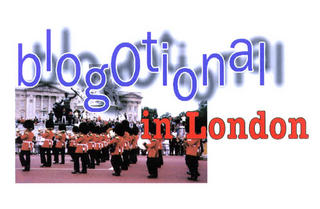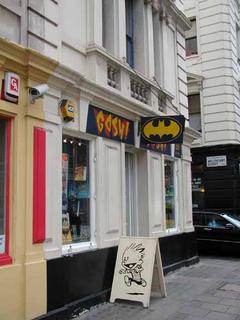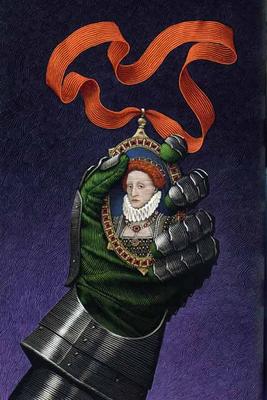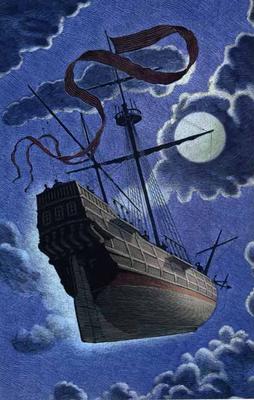Saturday, August 27, 2005
Comic Art
 A brief break from the "Honorable Mentions." Regular readers probably could have guessed, but one of the things I most looked forward to on the recent trip abroad was shopping for comics! In many cases what's available is just the same stuff you get in the US, translated. Not many countires have a well developed internal industry. I found comics at a flea market in Sweden, but found nothing there of interest.
A brief break from the "Honorable Mentions." Regular readers probably could have guessed, but one of the things I most looked forward to on the recent trip abroad was shopping for comics! In many cases what's available is just the same stuff you get in the US, translated. Not many countires have a well developed internal industry. I found comics at a flea market in Sweden, but found nothing there of interest. Many of the best recognized comic creators in the US are from the UK. There have always been some great UK titles, but recently the industry is really growing there. This specialty shop is located right across the street from the British Museum and I spent more time there than I probably should have. I tried to concentrate my buying on stuff I could not get in the US. It proved not be be much of a challenge -- there was a lot of material.
Many of the best recognized comic creators in the US are from the UK. There have always been some great UK titles, but recently the industry is really growing there. This specialty shop is located right across the street from the British Museum and I spent more time there than I probably should have. I tried to concentrate my buying on stuff I could not get in the US. It proved not be be much of a challenge -- there was a lot of material. My wife found what ended up being the most memorable purchase. It was a graphic novel, collecting an 8-issue mini-series, called "1602." The series was written by Neil Gaiman, one of the more innovative, and certainly the most literary of people writing comics today. (He won a short story award for some of his work on "Sandman.") The series is drawn by Andy Kubert. Andy has been around quite a while and his work is widely known and well done.
My wife found what ended up being the most memorable purchase. It was a graphic novel, collecting an 8-issue mini-series, called "1602." The series was written by Neil Gaiman, one of the more innovative, and certainly the most literary of people writing comics today. (He won a short story award for some of his work on "Sandman.") The series is drawn by Andy Kubert. Andy has been around quite a while and his work is widely known and well done.The series is set in, unsurprizingly, 1602 when the crowns of England and Scotland were united under James the VI of Scotland and I of England. Not unlike the old "What If" series, the story examines what would have happened had there been superheroes in this historic age.
 I found the series fascintating for two reasons. Firstly, Kubert adjusted his art style to give the book a genuine feel for the era. As these pictures illustrate, they even did covers to resemble woodcuts. The effect was remarkable. I also loved the historical setting. As a bit of a fan of British and Scottish history, the series was not inaccurate and terribly fun, having the heroes play important roles in the politics that had to have governed such a momentous governmental shift.
I found the series fascintating for two reasons. Firstly, Kubert adjusted his art style to give the book a genuine feel for the era. As these pictures illustrate, they even did covers to resemble woodcuts. The effect was remarkable. I also loved the historical setting. As a bit of a fan of British and Scottish history, the series was not inaccurate and terribly fun, having the heroes play important roles in the politics that had to have governed such a momentous governmental shift.Frankly, I'd like to see the concept extended to other key historical periods for many nations. Imagine superheroes having to chose sides in the Russian revolution, or present in the American revolutionary war.
Though not easy to get in the US, I recommend 1602 to you.
And while we are talking about foreign comics, it's great to see stories on Japanese comics in the legacy media.





